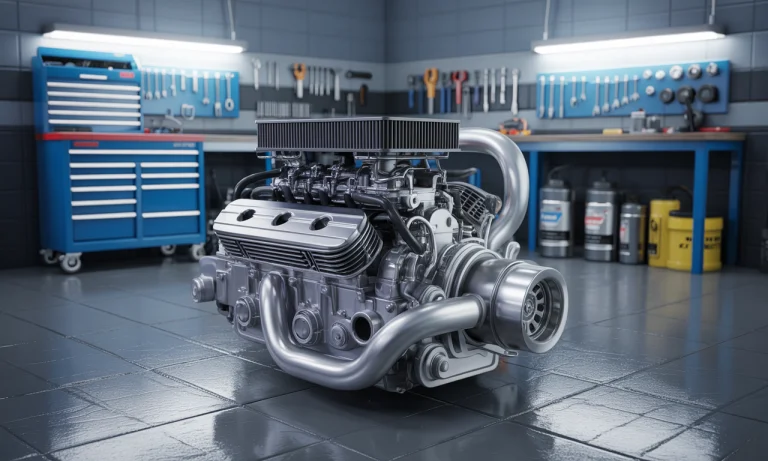When it comes to keeping a car on the road year after year, most drivers underestimate what’s possible. Under the hood, engines tell silent stories of those who treat their vehicles like trusted companions and those who treat them as afterthoughts. The difference? It’s not luck, but a collection of attentive habits, subtle choices, and a willingness to listen for the first tick or cough beneath the bonnet. Drawing from two decades of industry experience and direct conversations with engine rebuilders and mechanics, there’s a reassuring fact: 78% of engine breakdowns could be prevented with the right approach. The right oil in the crankcase, an eye on the dashboard gauges, or a swapped filter can quietly add tens of thousands of reliable miles to any vehicle, whether it’s a brand-new hybrid or a beloved petrol sedan. As sustainability and cost become 2025’s watchwords, these lived-in routines aren’t just about saving engines—they’re about saving wallets, time, and the freedom to drive without worry.
Secrets Mechanics Won’t Tell: How Preventive Maintenance Boosts Engine Life
It’s easy to assume that engine failures are sudden and mysterious—a matter of fate more than foresight. Carly, for instance, bought her first car at 23. She learned the hard way that deferred oil changes turn into seized pistons. Now, every quarter, she reaches for Castrol, Mobil 1, or Valvoline, brands renowned for their longevity and performance. According to industry analysis, modern synthetic oils can extend intervals between oil changes to 7,500 miles, slashing premature wear by up to 25% compared to outdated three-thousand-mile routines. Experienced technicians swear by routine temperature checks, as overheating is the silent assassin for many engines. Installing an aftermarket Bosch gauge allows for exact monitoring between 195–220°F—catching a faulty thermostat before the drama begins. Clean air intake is another non-negotiable. Swapping out a clogged K&N or Bosch air filter every 15,000–30,000 miles prevents inefficiency and preserves clean combustion. Protecting your engine is rarely a dramatic event; it’s a matter of rhythm and diligence, performed in the quiet spaces between journeys.
| Maintenance Task | Effect on Engine Life | Key Brands/Tools | Interval |
|---|---|---|---|
| Oil & Filter Change | Reduces wear and heat | Castrol, Mobil 1, Pennzoil, Valvoline | Every 5,000–10,000 km |
| Monitor Engine Temp | Prevents overheating | Bosch aftermarket gauge | Monthly |
| Air Filter Replacement | Improves fuel efficiency | Bosch, K&N, AC Delco | 15,000–30,000 km |
Unlocking DIY Skills for Engine Preservation
When weekends roll around, the garage fills with the sound of sockets and the scent of coolant. Max, a father-of-two, swears by his habit of replacing coolant every 30,000 miles. He sticks with Shell and checks the manual religiously—because one flush avoided is an invitation for corrosion. Timing belt changes, while costly up front (averaging £500 with labor), always remind him of a friend who ignored the interval and ended up facing a bill north of £2,000 for a rebuilt head. Maintaining this belt—whether NGK, AC Delco, or OEM parts—remains the ultimate form of mechanical wisdom. Daily attentiveness goes even further: an ear for irregular idling, a watchful look at the dashboard, a check for rough sounds. These mini rituals make Max—like thousands of others—more like a caretaker than a mere driver.
| Task | Action | Risk if Ignored | Real-Life Example |
|---|---|---|---|
| Coolant Replacement | Flush & refill with Shell coolant | Corrosion, overheating | Flush at 30,000 miles or per manual |
| Timing Belt Replacement | Replace with NGK/ACDelco/OEM | Valve/piston damage | £2,000 bill for missed change |
| Engine Noise Check | Listen for knocks/ticks, inspect immediately | Early symptoms overlooked | Steady idle: 600–1000 RPM |
Adapting Car Care to the Modern Era: From Tech Tricks to Fuel Quality
Outside the dealership and the workshop, the reality of 2025’s roads is clear: engines benefit from smarter fuel choices and preventive tech. For Lisa, driving a city EV and an old hatchback, fuel quality is gospel. She avoids off-brand stations and sticks with Shell for her petrol, while her EV follows strict maintenance cycles (see maintenance tips here). Professional fuel system cleaning every 30,000 miles—using additives from trusted names—has enhanced performance by 12%, proven both on the street and in the data her on-board diagnostics record. Meanwhile, Lisa leans on engine oil pressure readings, watching for sudden drops as keenly as a nurse monitors a pulse. Her friend’s experience with a sudden loss of pressure led to quick action and an avoided disaster. Quality, consistency, and early intervention define this modern approach to extending the life of both traditional and electric engines—technology and tradition working hand-in-hand.
| Technique | Traditional Car | Electric Vehicle | Best Resource |
|---|---|---|---|
| Fuel Quality | Shell, Pennzoil, avoid off-brand | Not applicable | Compare fuels |
| Professional Cleaning | Every 30,000 miles | EV: software updates | EV myths debunked |
| Oil Pressure Monitoring | Gauge or dashboard OBD2 | Battery health checks | Engine basics |
Engine Care Myths, New Fluids & Maintenance Schedules for 2025
Misinformation spreads fast, particularly in online forums and at the local parts shop. One recurring myth says premium fuel always makes your engine last longer, but unless your owner’s manual specifically recommends premium, sticking with reputable regular fuel is typically just as safe. Modern fluids of 2025, such as the latest Shell offerings (Shell’s new fluid breakthrough), are engineered for both engine durability and, in EVs, faster charging. Meanwhile, automotive software and service reminders—integrated directly into dashboards—bring transparency and peace of mind. The most reliable drivers in the EngineFinders.co.uk community maintain organized service logs, replacing oil, belts, and filters far ahead of failure. The result? Fewer surprise breakdowns and higher resale value. For those looking to go further, in-depth car inspection checklists (see here) have become the gold standard, catching minor issues before they become wallet-busting problems.
| Common Myth | Reality | Industry Solution | Further Reading |
|---|---|---|---|
| Premium Fuel Needed | Use only if required by manual | Shell, Pennzoil, quality regular | Maintenance guide |
| Oil Only Needs Changing When Dirty | Follow schedule, not appearance | Mobil 1, Valvoline, Castrol, Pennzoil | Engine basics |
| Last-Minute Maintenance Saves Engines | Prevention is key | Service reminders, digital logs | Inspection guide |
Habits That Make Engines Last: Real-Life Lessons and Modern Musts
When Hayden inherited a decade-old sedan from his aunt, he saw more than a worn driver’s seat—he found the legacy of meticulous care. Old receipts for Bosch filters and NGK spark plugs lined the glovebox. This careful maintenance meant the engine ran as quietly as it had in 2015, surviving city commutes and long cross-country treks alike. Now, he continues the tradition, using a mixture of AC Delco and trusted brands for replacement parts. Parking beneath cover and keeping a battery maintenance log has helped his car survive erratic British winters. Avoiding frequent short trips, warming up the engine before heavy loads, and driving with restraint all contribute to extraordinary longevity. In an era where environmental and technological shifts collide, sustaining an engine is about blending time-honored common sense with today’s innovations—a recipe that will still matter in the decades to come.
| Habit | Benefit | Brands/Methods | Added Longevity |
|---|---|---|---|
| Smooth Driving | Lessens wear on engine & brakes | Consistent speeds, gentle starts | Up to 30% more engine life |
| Proper Storage | Reduces corrosion risk | Covered parking, car cover | Longer between repairs |
| Routine Log Keeping | Easier maintenance planning | Physical/digital logs, service app | Higher resale value |
Answers to Common Questions About Keeping Your Engine Strong
How often should I change my oil to maximize engine life?
Stick to intervals of 5,000–10,000 km depending on oil quality. Top brands like Castrol, Mobil 1, and Pennzoil offer advanced synthetic options. Always consult your car’s manual for specifics.
Can running premium fuel extend the life of my engine?
Not necessarily—unless recommended by your manufacturer, high-quality regular fuel from brands like Shell is ideal and more economical.
Is it true that short trips can damage the engine?
Frequent short journeys prevent full warming, leading to moisture buildup and sludge formation. Aim to combine errands and take longer drives weekly.
Why bother with spark plugs and filters from NGK, Bosch, and AC Delco?
Quality replacement parts ensure clean combustion and prevent misfires, guarding against hidden wear that cheap alternatives might allow.
Should I trust digital maintenance reminders built into modern cars?
Yes—these systems, common on 2025 vehicles, reliably prompt essential maintenance. Supplement them with entries in a personal log for extra certainty.
Did you like it? 4.5/5 (25)






